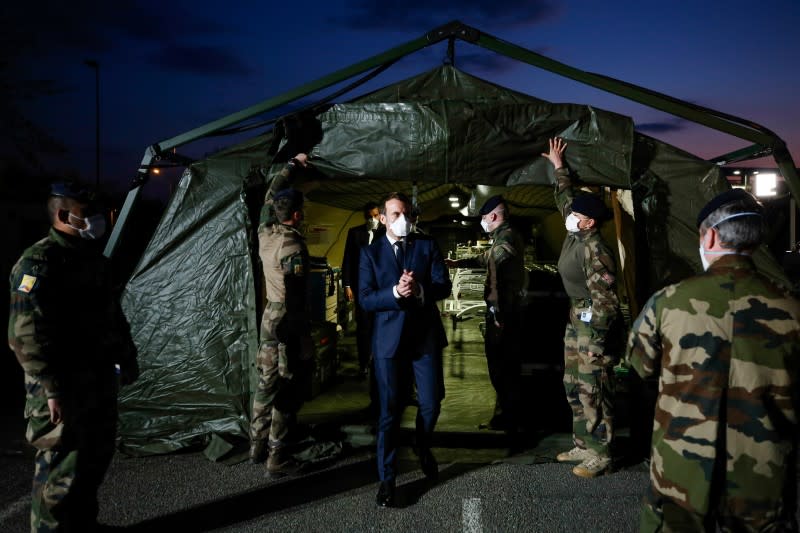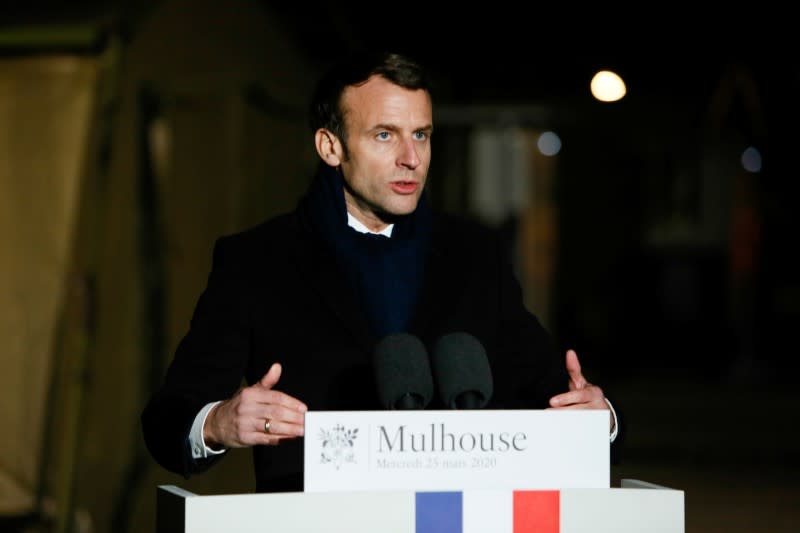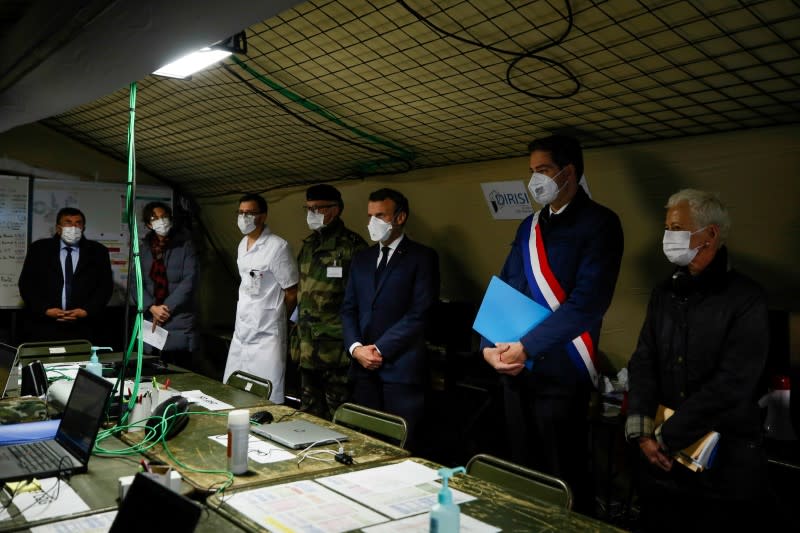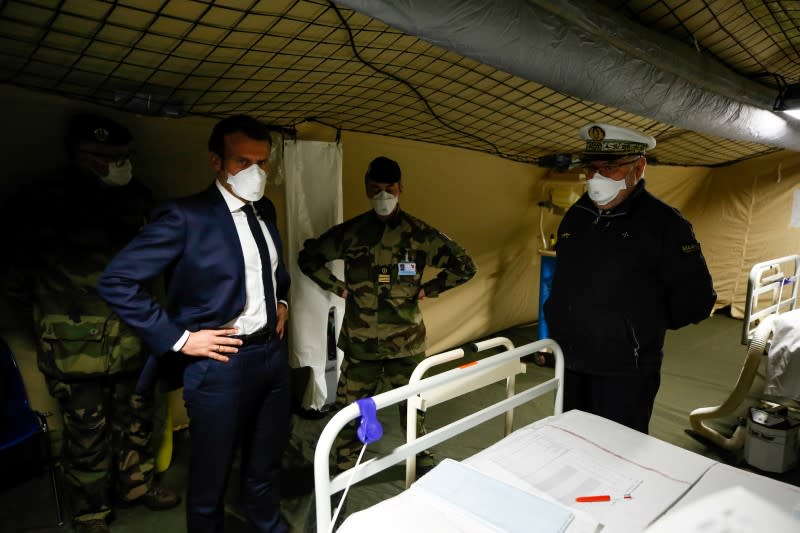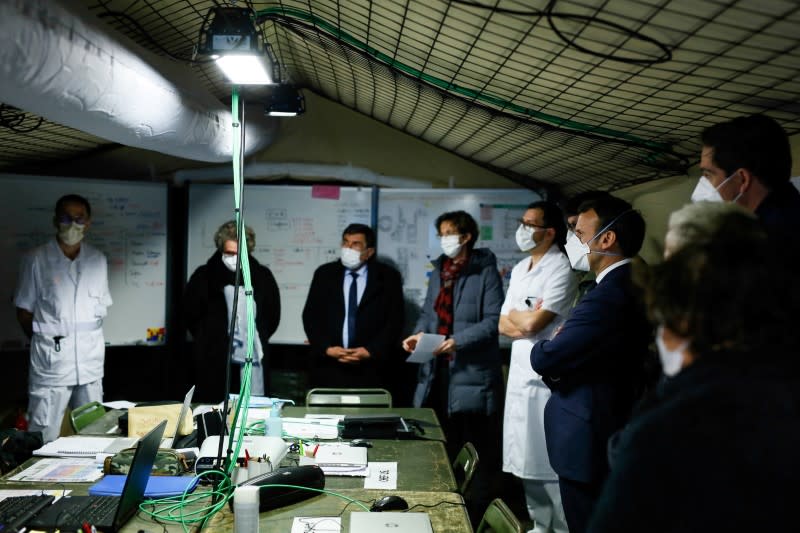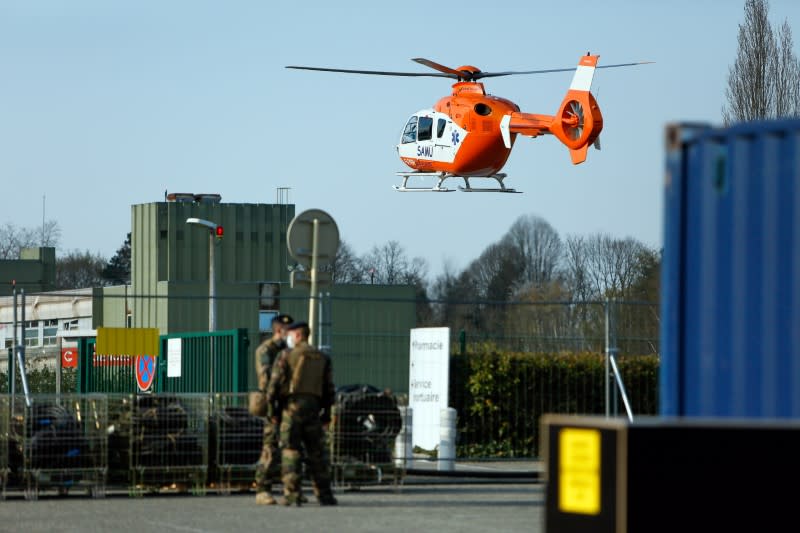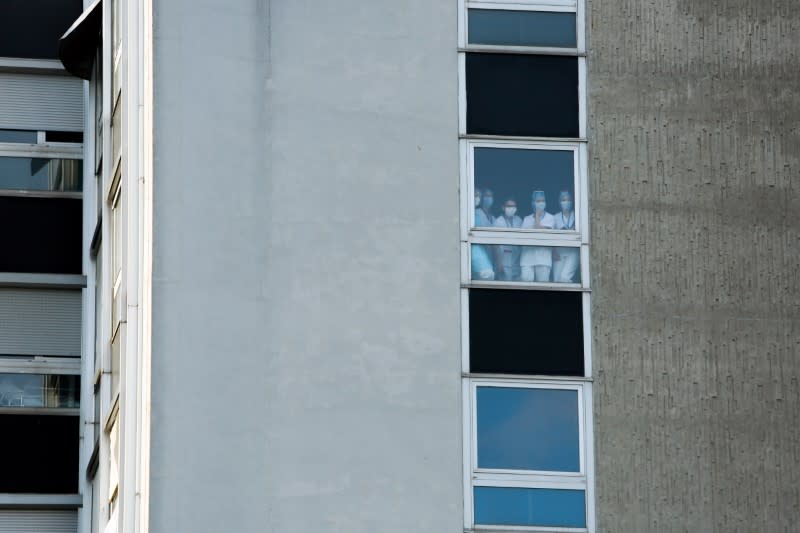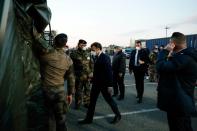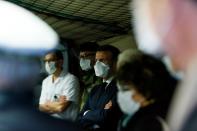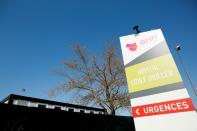French army moves up a gear in war against coronavirus
By Tangi Salaün and John Irish
PARIS (Reuters) - A soldier ushers in a three-man medical team transporting a person on life-support toward an army field hospital. Army nurses then order a complete sanitary check before the medical team can enter.
"Glasses firm? Hands washed? In between fingers done?" the nurse calls out as the medical team complete their preparations before the first patient with coronavirus can enter the tent.
The scene would not look out of place in West Africa, where thousands of French troops are fighting Islamist militants.
But this is Mulhouse, eastern France, whose healthcare system has reached breaking point due to the coronavirus pandemic and where an army field hospital with 30-intensive care beds is now helping to ease some of the burden.
It is also the starting gun given for the army to take on a bigger role as France braces for a coronavirus wave that has already killed 1,331 people and left more than 2,800 in intensive care. France in total has 5,000 intensive care beds.
"I am ordering Operation Resilience," President Emmanuel Macron said at the site of the hospital on Wednesday. "It will be dedicated to helping the population, supporting public services and confronting the epidemic at home and in our overseas territories."
The military has so far been used to transfer patients in critical condition, whether by plane from the east or warship from Corsica to other hospitals in France that have been less impacted.
That is about to change.
GREATER EFFICIENCY
"Having a clear command structure for inter-army missions makes a lot of sense in terms of general coordination. We know who will handle what and we can save a lot of time and efficiency," said a military source involved in the preparations.
The impact on French overseas' operations, where there are some 10,000 troops, including in Africa and the Middle East, is not expected to be great.
But highlighting just how serious the effort will be, the operation will be headed by France's top general and managed out of a command center used to coordinate the country's main external operations.
"Nobody expects the army to resolve the crisis by itself," said a French military official. "Wherever we can be useful, we will be."
The army will not be called upon to ensure the strict confinement of people as has been the case in some other countries, officials said.
However, it will be used to protect strategic sites such as pharmacy depots and stockpiles of medical equipment and ventilators after a recent spate of thefts.
It will also broaden existing efforts to shuffle patients around the country and also in France's overseas' territories, where two warships were dispatched this week as the situation worsens there.
"Our objective is to be able to respond to the needs expressed by the regional police headquarters which will collate the requests," army spokesman Colonel Frederic Barbry said.
"The number of soldiers mobilized will depend on the needs expressed and will vary over time."
(Writing by John Irish; Editing by Gareth Jones)

